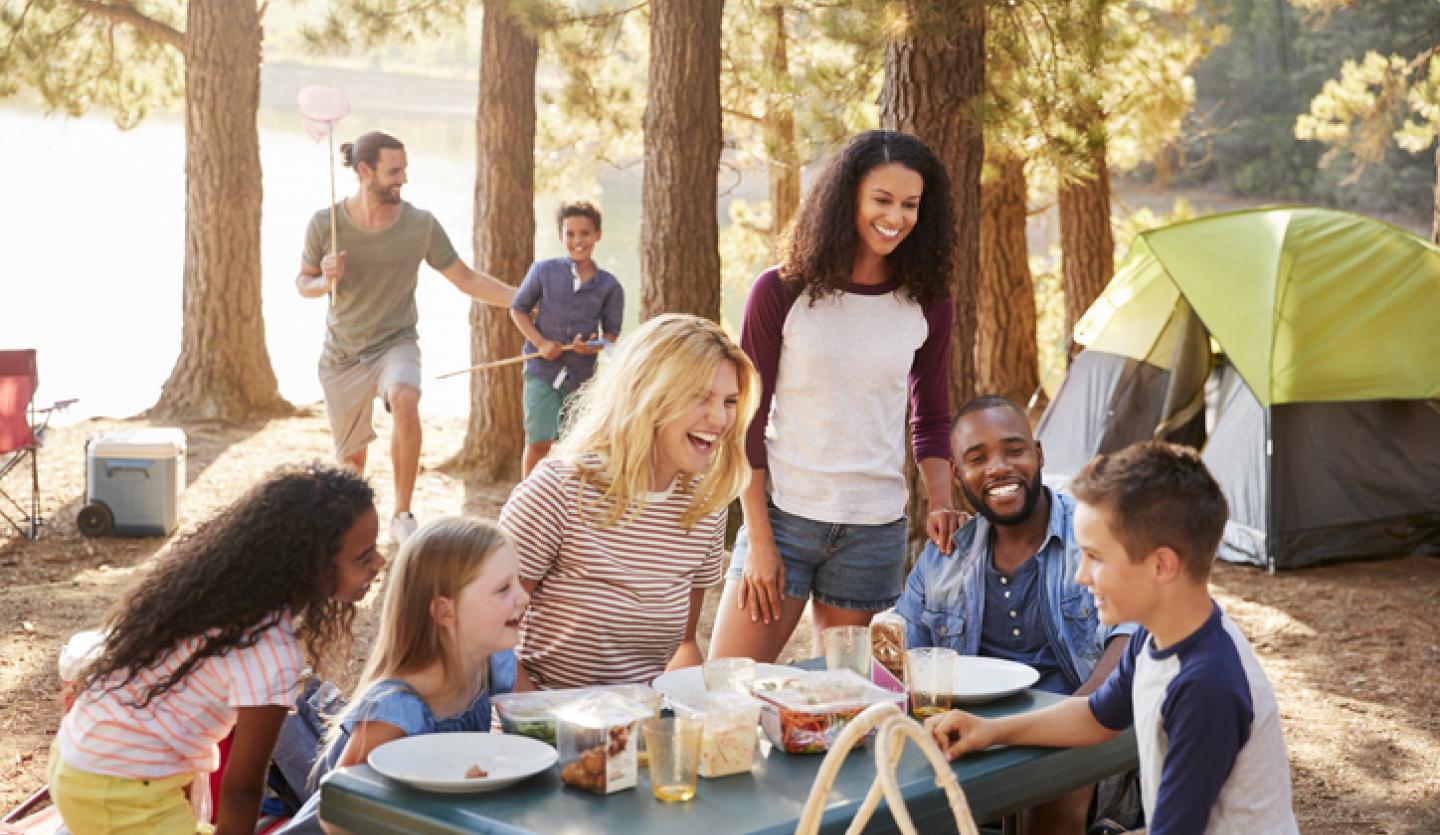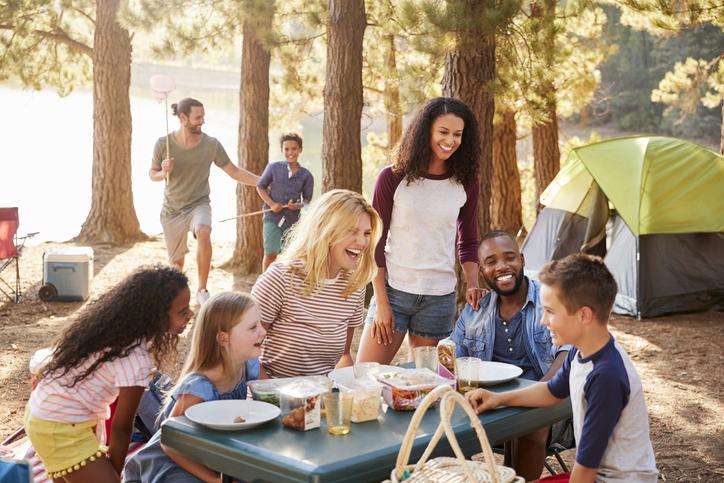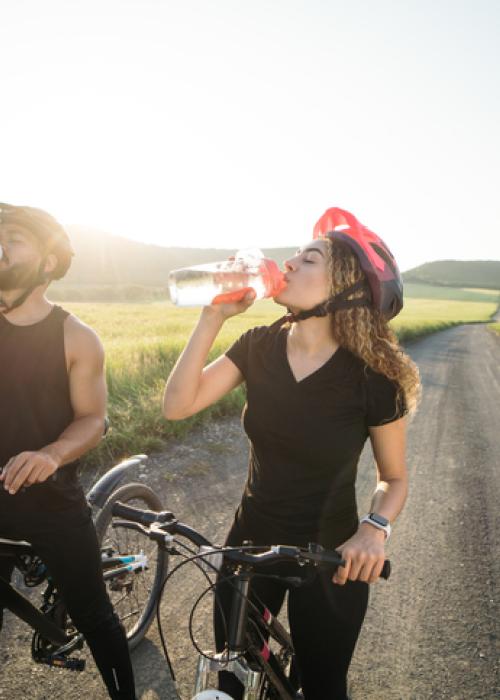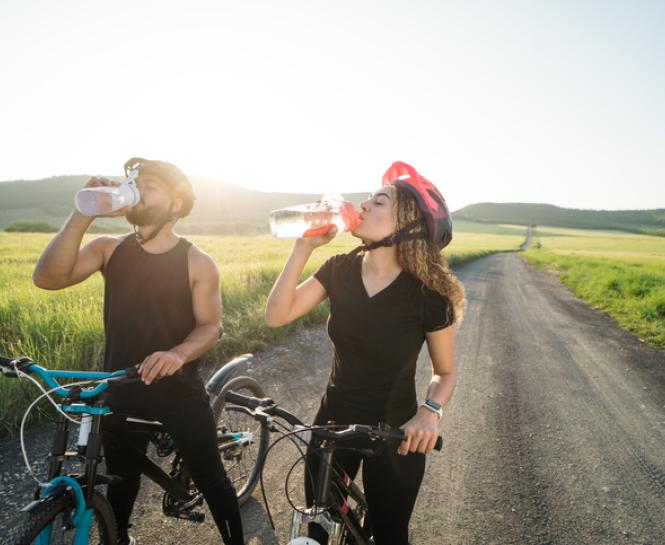“Sunny and warm days spent outside—enjoying everything from the beach to long walks and barbeques and picnics—are highlights of the summer,” said Elizabeth White-Fricker, DO, Catholic Health Primary Care Physician. “Keeping yourself safe during summer activities can help you make the most of those days.”
Tips for sun protection
“Protecting yourself from the sun reduces your risk of sunburn and sun poisoning,” said Dr. White-Fricker. “It also reduces your risk of skin cancer, the most common cancer in America."
Take the following steps to protect yourself from sun damage:
- Always use a broad-spectrum sunscreen with an SPF value of 30 or higher.
- Be aware that reflective surfaces like water, sand and concrete can also cause sunburn.
- Limit your exposure, especially from 10 a.m. to 4 p.m. when the sun is most intense.
- Wear protective clothing, including long sleeves, hats, pants and sunglasses.
How to use sunscreen effectively
To get the most protection from your sunscreen:
- Apply sunscreen with an SPF value of 30 or higher 15 minutes before going outside.
- Do not expose your sunscreen to direct light. Wrap the container in a towel, keep it in the shade or put it in a cooler.
- Reapply sunscreen every two hours or more frequently if swimming or sweating excessively.
- Use liberal amounts of sunscreen to ensure adequate coverage on your face and body.
Tips for exposure to poisonous plants
“If you spend a lot of time outdoors, especially in wooded areas, you will likely be near poisonous plants like poison ivy, oak and sumac that can cause an allergic reaction if your skin makes contact,” said Dr. White-Fricker. “A rash can cause mild symptoms like itching that you can treat at home, but a more severe rash can lead to infection or cause complications like fever and difficulty breathing.”
She explained that at the first sign of a rash, you should contact your primary care physician (PCP) to ensure it is correctly diagnosed and treated.
To prevent an allergic reaction to summer’s poisonous plants:
- Avoid areas with plants that cause allergic reactions, such as poison ivy, oak and sumac. These plants contain an oily sap called urushiol, which typically causes a severe rash, itching and blisters that ooze clear fluid when skin makes contact.
- Remove and wash all clothing that comes into contact with your clothing or the plant. Use gloves when touching the clothing to prevent the plant’s oil from getting on your skin.
- Thoroughly wash your skin and scrub under your fingernails with soap and water after contact with poisonous plants.
Those who are allergic to the plant oils may develop a rash within hours up to a few days, which can last two to three weeks.
At-home treatments include oatmeal baths, oral medication and anti-itch creams and ointments. Call your doctor immediately if your rash spreads, worsens or shows signs of infection, such as redness, pain or swelling.
Tips for ticks and insect bites and stings
“Ticks and insects can be more than a nuisance during an outdoor summer gathering,” said Dr. White-Fricker. “Bites can cause allergic reactions or more severe complications like Lyme disease.”
Use these tips to protect yourself from ticks, bee stings and bug bites.
-
Avoid areas where mosquitos breed, such as ponds, standing water or swimming pools.
-
Avoid areas where ticks are more likely to be, such as grassy and wooded areas. Learn more about safely removing a tick and the symptoms of Lyme disease.
-
Carry an emergency epinephrine kit (EpiPen) if you experience allergic reactions to insect bites and stings.
-
Use insect repellant that contains between 10% and 30% DEET.
-
Wear protective clothing when outdoors.
-
Call your primary care physician (PCP) if you have symptoms after a bite, like fever, redness, blistering, or swelling.
Tips for outdoor activity
“The summer is a great time to meet our exercise goals outside, whether it is a walk or bike ride in our neighborhood, at the beach or on a hiking trail,” said Dr. White-Fricker. “But taking precautions and using protective measures can help prevent falls and sprains and reduce the risk of heat illnesses.”
Keep these tips in mind when being active outdoors:
- Wear proper footwear.
- Walk on clearly designated pathways. Use reflective gear and a flashlight when it is nighttime.
- Wear a helmet when bicycling.
- Avoid outdoor activity in extreme heat. Know the signs of heat illnesses.
- Drink plenty of water.
- Protect yourself from the sun with protective clothing and sunscreen.
Find Care at Catholic Health
Find a Catholic Health doctor near you. Or call 866-MY-LI-DOC (866-695-4362).







